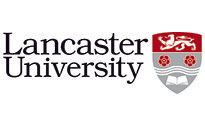Real estate portfolio management and development represent a cornerstone of strategic asset allocation in both private and institutional investment frameworks. As urbanization accelerates and global real estate markets become increasingly complex, the ability to effectively manage and optimize portfolios has never been more critical. Professionals tasked with overseeing real estate assets must navigate a labyrinth of market dynamics, regulatory requirements, and evolving consumer demands. This course is designed to equip participants with the tools and insights necessary to excel in this dynamic field, ensuring they can deliver value to their organizations while maintaining compliance and achieving sustainable growth.
The real estate industry faces significant challenges, including fluctuating market conditions, environmental sustainability mandates, and technological disruptions. For instance, the rise of proptech (property technology) has transformed how assets are managed, marketed, and valued. However, many practitioners struggle to integrate these innovations into their workflows due to gaps in technical knowledge or resistance to change. Furthermore, the lack of standardized frameworks for risk assessment and portfolio optimization often leads to suboptimal decision-making. This course addresses these gaps by providing a comprehensive understanding of modern portfolio management techniques, supported by case studies such as Blackstone’s successful deployment of data analytics in its real estate ventures.
Mastering the principles of real estate portfolio management offers substantial benefits for both individuals and organizations. For professionals, it enhances career prospects by equipping them with sought-after skills in asset valuation, risk mitigation, and strategic planning. Organizations, on the other hand, gain a competitive edge through improved operational efficiency and higher returns on investment. Drawing on established theories like Modern Portfolio Theory (MPT), which emphasizes diversification and risk-adjusted returns, participants will learn to construct portfolios that balance profitability with resilience. Additionally, the course incorporates lessons from adaptive reuse projects, such as the transformation of industrial spaces into mixed-use developments, showcasing practical applications of theoretical concepts.
Real-world examples further underscore the relevance of this discipline. Consider the redevelopment of New York City’s Hudson Yards, a $25 billion project that exemplifies the integration of residential, commercial, and recreational spaces. Such megaprojects require meticulous portfolio management to align financial objectives with community needs and environmental considerations. Similarly, the rapid expansion of coworking spaces across Asia has highlighted the importance of agile portfolio strategies that respond to shifting tenant preferences. By examining these cases, participants will gain valuable insights into the multifaceted nature of real estate development and its impact on broader economic ecosystems.
Another key aspect of the course is its focus on sustainability and ESG (Environmental, Social, and Governance) criteria, which have emerged as pivotal factors in real estate investment decisions. Investors are increasingly prioritizing green buildings and socially responsible projects, driven by regulatory pressures and consumer expectations. The course delves into frameworks such as LEED certification and GRESB assessments, empowering participants to incorporate sustainability metrics into their portfolios. This not only enhances long-term viability but also aligns with global trends toward ethical investing.
Ultimately, this course serves as a bridge between theory and practice, offering participants the opportunity to deepen their expertise and drive meaningful change within their organizations. Whether managing a single property or overseeing a multinational portfolio, the skills acquired here will enable professionals to navigate uncertainty with confidence and precision. Through a blend of lectures, interactive workshops, and real-world simulations, participants will emerge equipped to tackle the challenges of tomorrow’s real estate landscape.




















































